This website uses cookies so that we can provide you with the best user experience possible. Cookie information is stored in your browser and performs functions such as recognising you when you return to our website and helping our team to understand which sections of the website you find most interesting and useful.

Guidance & Tools
SR Inc’s cloud-based, searchable, Digital Library provides access to SR Inc’s case-based management best practice guidance & tools which have been developed with Member-Clients over more than a decade to comprehend challenges and opportunities.
Selected executive guidance & tools available to Member-Clients
EU Corporate Sustainability Reporting Directive (CSRD) Member Advisory
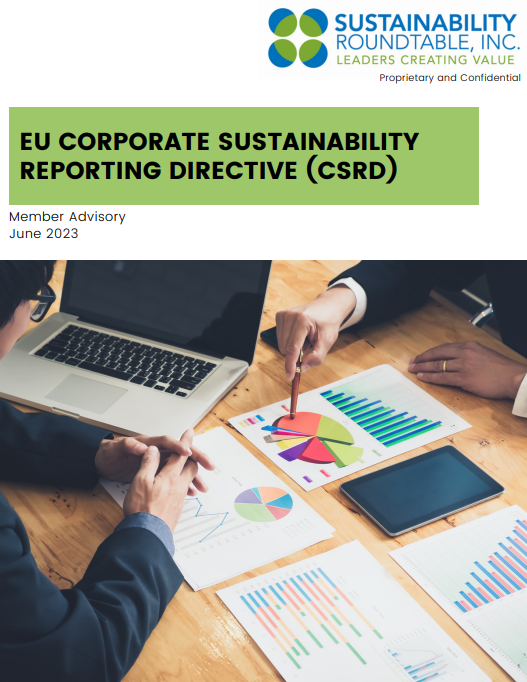
SBER Members only
This Member-Advisory gives an overview of CSRD’s key disclosure requirements, as well as compliance timelines and considerations for Member-Clients. CSRD (Corporate Sustainability Reporting Directive) replaces the NFRD (Non-Financial Reporting Directive) and expands its scope from roughly 11,000 companies to cover around 50,000 EU and non-EU companies with significant business in EU member states or markets. Compliance timelines vary, with the first companies required to report in FY25, and smaller companies given until 2028 to comply. This report offers insights into key features, themes, and requirements within CSRD while concluding with stepwise guidance for Member-Client executives and their teams to engage in CSRD preparation.
Science-Based Targets Member Briefing
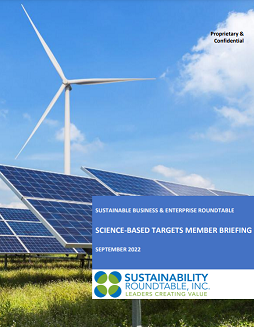
SBER Members only
Charting a Profitable Path to Net Zero Emissions
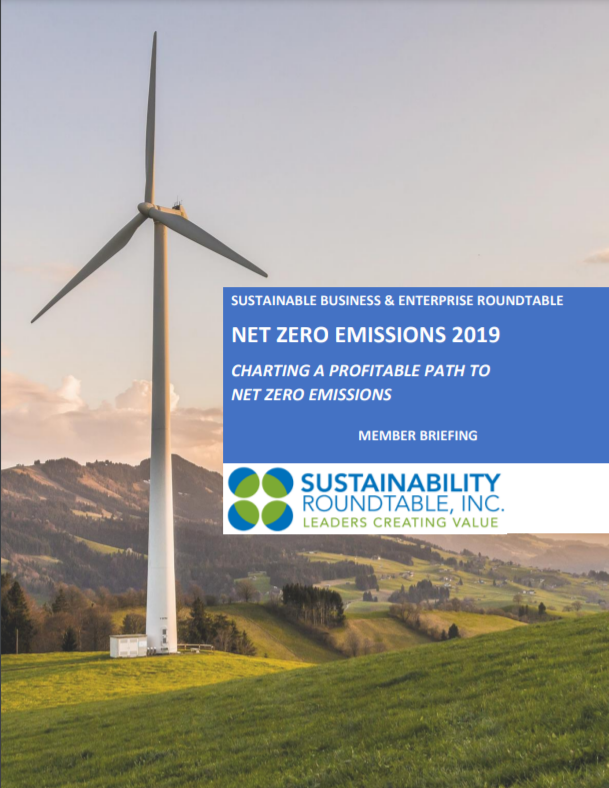
SBER Members only
The VPPA 2.0: Buyer Organized Aggregated VPPAs

SBER Members only
The Member Briefing begins by describing the astounding growth in renewable energy in the last decade and the RECs that have underpinned this growth. The report then details the mechanisms of the Utility-Scale Direct PPA, the VPPA, and the Buyer Organized Aggregated VPPA and includes an in-depth discussion of the risks inherent in the VPPA and how to best mitigate them. This guidance is driven by the experience of SR Inc’s Member-Clients and the report includes case studies of executed Buyer Organized Aggregated VPPAs by Member-Clients Akamai, Bloomberg, Cisco, and Intuit. The report concludes with tips and stepwise guidance for developing a strategy and executing a Buyer Organized Aggregated VPPA.
Member-only Resources
Free Downloads
The Playbook For Sustainably Healthy Workplaces

Playbook Download
Sustainably Healthy Workplaces (SHW) to guide managers through the integration of health and wellness into their workplace sustainability strategies. The Playbook draws on years of work with SR Inc Member-Clients and makes the business case for integrating health and wellness strategies into existing workplace management programs. Throughout the development of this Playbook, SR Inc leveraged the research of Delos, the developers of the WELL Building Standard, regarding measuring and optimizing the impact of the built environment on worker behaviors.
The purpose of the SHW Playbook is to effectively integrate health and wellness into existing sustainability strategies. The Playbook highlights the unique challenges and opportunities of influencing employee wellness and work engagement through management of the built environment. The Playbook acknowledges existing structures and programs and provides guidance on evolving sustainability programs to capture the benefits of health and wellness interventions, such as increased employee work engagement, reduced health costs, increased employee satisfaction and reduced turnover and absenteeism.
Please enter your email below to start the download:
Defining and Decarbonizing Scope 2 Emissions Globally
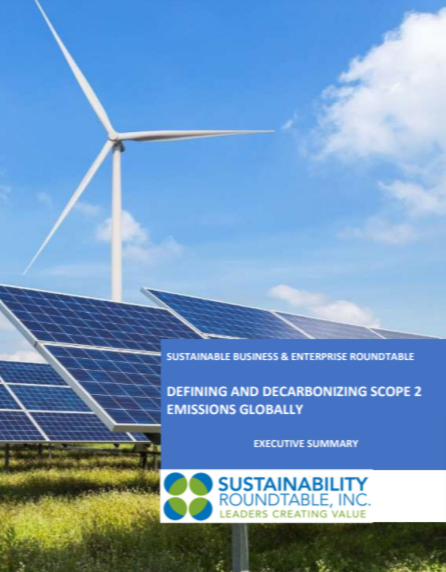
Scope 2 Emissions Globally Download
Following SR Inc’s Member Briefing on Charting a Profitable Path to Net Zero Emissions in 2019, this briefing focuses more specifically on breakthrough
decarbonization strategies for Scope 2. The strategies reviewed include energy efficiency projects, on-site solar installations, green tariffs, community solar, utility-scale direct power purchase agreements (PPAs), virtual PPAs (VPPAs), and unbundled REC procurement.
Please enter your email below to start the download:
Defining and Decarbonizing Scope 3 Emissions Globally
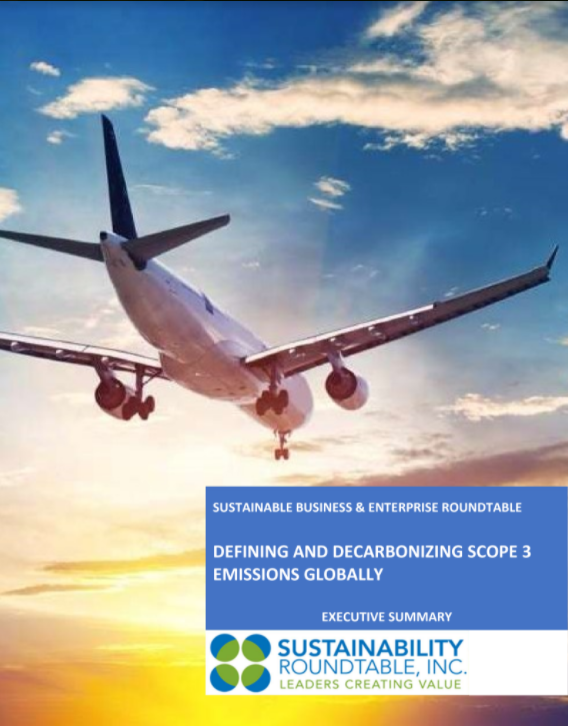
Scope 3 Emissions Globally Download
Greenhouse gas (GHG) emissions from corporate value chains, known as “Scope 3” emissions, make up most of the corporate impact on the environment. According to the CDP, Scope 3 emissions are, on average, 11.4 times higher than Scopes 1 and 2 combined. This briefing was created to advise companies who have calculated a preliminary baseline of Scope 3 and are considering setting Science- Based Targets (SBTs). For companies who haven’t yet calculated a Scope 3 baseline, SR Inc has developed guidance and tools to assist with measurement and tracking of Scope 3 emissions.
Please enter your email below to start the download:
"Scope 4" Policy Impacts
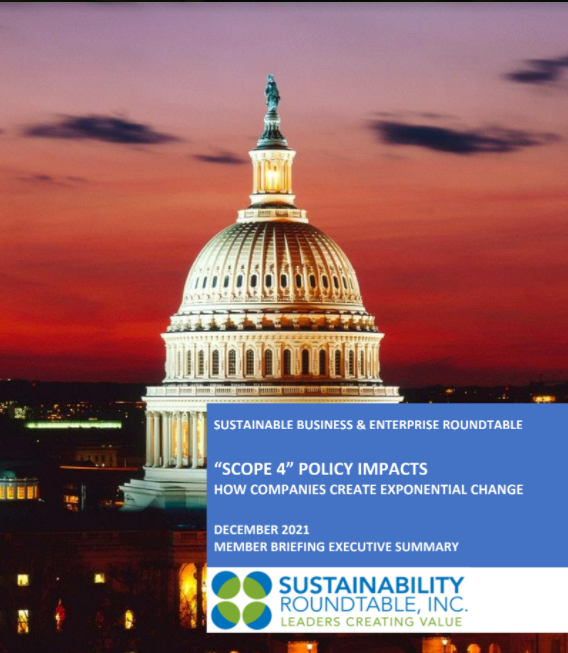
"Scope 4" Policy Impacts Download
As calls from climate scientists become more dire, many large companies have taken steps to decarbonize their operational carbon footprints. The leaders in the field, aiming for the emissions reduction required by the latest climate science, are beginning to use their influence to decarbonize beyond their own operations and value chains as well. Leading companies and SR Inc Member-Clients are matching their internal efforts to address climate breakdown with their own and their trade associations’ climate advocacy, often referred to as “Scope 4” impact.

